| Part of a series on the |
| Dreyfus affair |
|---|
 |
This is a bibliography of works on the Dreyfus Affair .
| Part of a series on the |
| Dreyfus affair |
|---|
 |
This is a bibliography of works on the Dreyfus Affair .

Émile Édouard Charles Antoine Zola was a French novelist, journalist, playwright, the best-known practitioner of the literary school of naturalism, and an important contributor to the development of theatrical naturalism. He was a major figure in the political liberalization of France and in the exoneration of the falsely accused and convicted army officer Alfred Dreyfus, which is encapsulated in his renowned newspaper opinion headlined J'Accuse…! Zola was nominated for the first and second Nobel prizes in literature in 1901 and 1902.

The Dreyfus affair was a political scandal that divided the Third French Republic from 1894 until its resolution in 1906. The scandal began in December 1894 when Captain Alfred Dreyfus, a 35-year-old Alsatian French artillery officer of Jewish descent, was wrongfully convicted of treason for communicating French military secrets to the German Embassy in Paris. He was sentenced to life imprisonment and sent overseas to the penal colony on Devil's Island in French Guiana, where he spent the following five years imprisoned in very harsh conditions.

Alfred Dreyfus was a French artillery officer of Alsatian origin and Jewish ethnicity and faith. In 1894, he fell victim to a judicial conspiracy that sparked a major political crisis during the Third Republic, known as the Dreyfus Affair (1894–1906), when he was wrongfully accused and convicted, due to antisemitism, of being a spy for the German Empire. Upon his arrest, he was sentenced to degradation and deported to the penal colony on Devil's Island to be imprisoned until his death. However, evidence emerged showing that Dreyfus was innocent and that the true culprit was a Catholic officer named Esterhazy. Gradual revelations indicated that the internal investigation conducted by the army was biased; Dreyfus was an ideal scapegoat because he was Jewish, and the army's high command was aware of his innocence but preferred to cover up the affair and leave him in the penal colony rather than lose face.
J'Accuse…! is an 1898 open letter by Émile Zola concerning the Dreyfus affair.

Marie-Georges Picquart was a French Army officer and Minister of War. He is best known for his role in the Dreyfus affair, in which he played a key role in uncovering the real culprit.
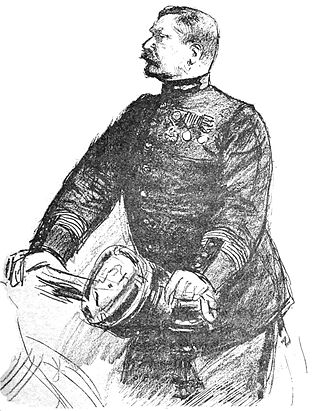
Hubert-Joseph Henry was a French Lieutenant-Colonel in 1897 involved in the Dreyfus affair. Arrested for having forged evidence against Alfred Dreyfus, he was found dead in his prison cell. He was considered a hero by the Anti-Dreyfusards.

The Moderates or Moderate Republicans, pejoratively labeled Opportunist Republicans, was a French political group active in the late 19th century during the Third French Republic. The leaders of the group included Adolphe Thiers, Jules Ferry, Jules Grévy, Henri Wallon and René Waldeck-Rousseau.
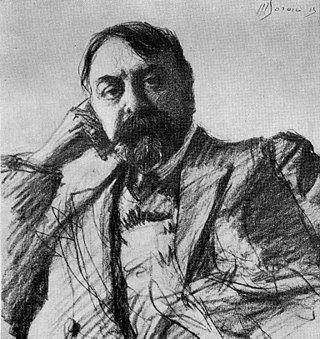
Henri Vaugeois was a French teacher and journalist who was one of the founders of right-wing nationalist Action Française movement.

"J'Accuse...!" is an open letter, written by Émile Zola in response to the events of the Dreyfus affair, that was published on 13 January 1898 in the newspaper L'Aurore. Zola addressed the president of France, Félix Faure, and accused his government of antisemitism and the unlawful jailing of Alfred Dreyfus, a French Army General Staff officer who was sentenced to lifelong penal servitude for espionage. Zola pointed out judicial errors and lack of serious evidence. The letter was printed on the front page of the newspaper, and caused a stir in France and abroad. Zola was prosecuted for libel and found guilty on 23 February 1898. To avoid imprisonment, he fled to England, returning home in June 1899.
Events from the year 1898 in France.
Ernest Alfred Vizetelly (1853–1922) was an English journalist and author.
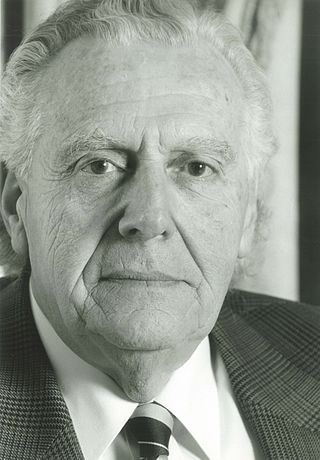
George R. Whyte was an author, composer, dramatist and art collector. His early education was at Highgate Junior School. A British national of Hungarian Jewish extraction, the Holocaust and the loss of many members of his family in Auschwitz have influenced his creative works which have increasingly focused on the struggle against social injustices especially racism.

Charles Armand Auguste Ferdinand Mercier du Paty de Clam was a French army officer, an amateur graphologist, and a key figure in the Dreyfus affair.

Lucie Dreyfus-Hadamard was the wife of Alfred Dreyfus.

Auguste Mercier was a French general and Minister of War at the time of the Dreyfus Affair.
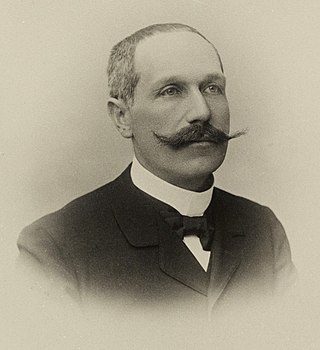
Mathieu Dreyfus was an Alsatian Jewish industrialist and the older brother of Alfred Dreyfus, a French military officer falsely convicted of treason in what became known as the Dreyfus affair. Mathieu was one of his brother's most loyal supporters throughout the affair.
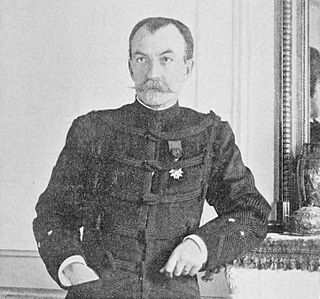
George Gabriel de Pellieux was a French army officer who was best known for ignoring evidence during the Dreyfus affair, a scandal in which a Jewish officer was convicted of treason on the basis of a forgery.

The Ligue de la patrie française was a French nationalist and anti-Dreyfus organization. It was officially founded in 1899, and brought together leading right-wing artists, scientists and intellectuals. The league fielded candidates in the 1902 national elections, but was relatively unsuccessful. After this it gradually became dormant. Its bulletin ceased publication in 1909.
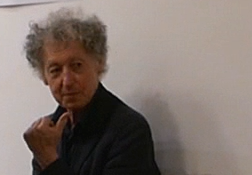
Pierre Birnbaum is a French historian and sociologist.
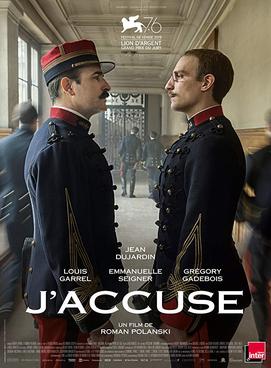
An Officer and a Spy is a 2019 historical drama film directed by Roman Polanski about the Dreyfus affair, with a screenplay by Polanski and Robert Harris based on Harris's 2013 novel of the same name. The name J'accuse has its origins in Émile Zola's article in l'Aurore in January 1898 in which the famous author accused many people of France of continuing to support the increasingly blatantly erroneous accusations against Dreyfus.